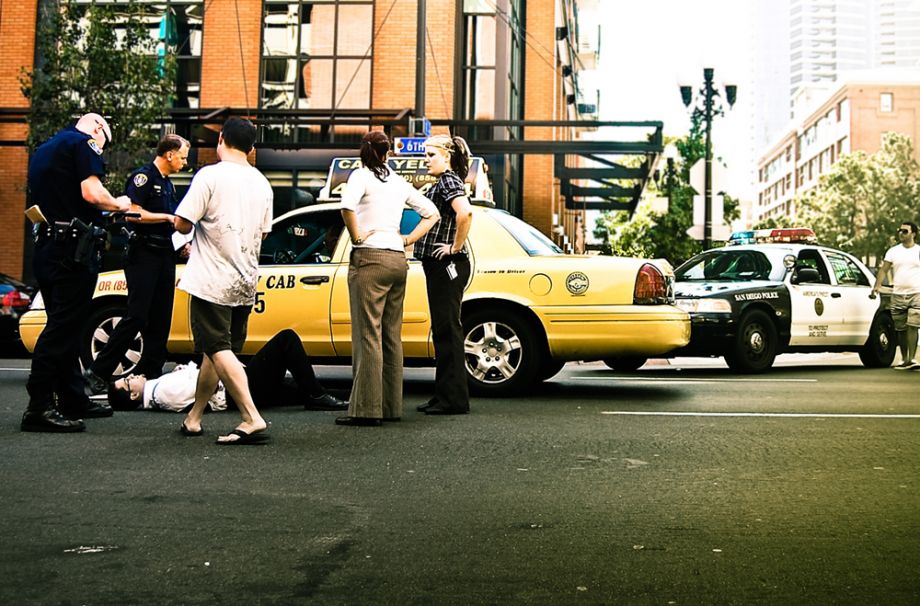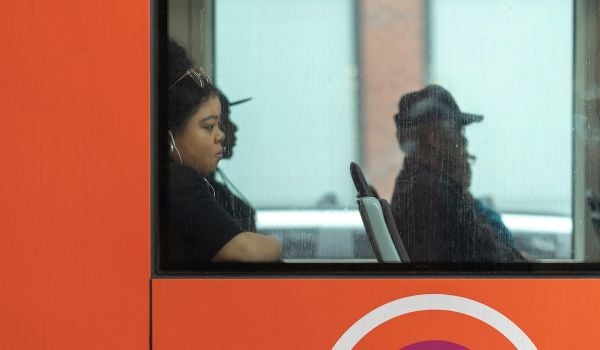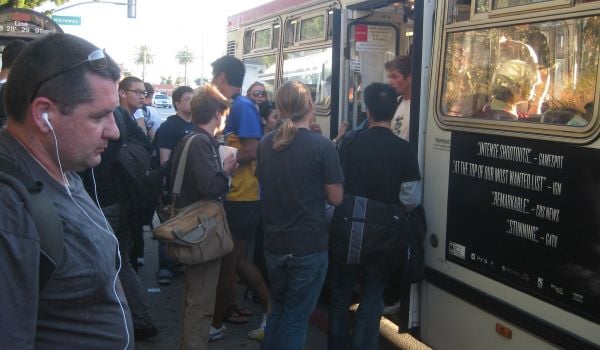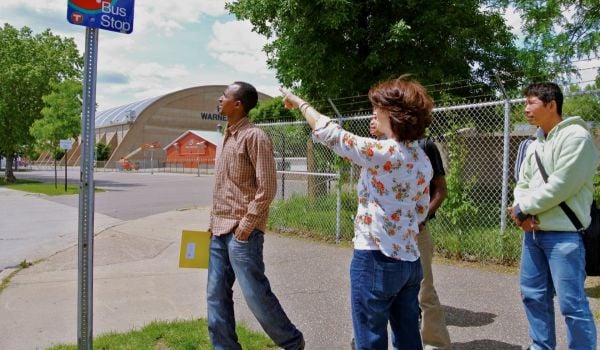As the sun sank toward the Pacific, Sam steered his taxi through downtown San Diego with rising anxiety. His fares for the day didn’t yet cover the $70 daily rental of his taxi, let alone provide any income for his family. Suddenly he saw a man on the opposite corner raise his arm.
“I turned the wheel so fast, in a big hurry trying to get the fare, and I hit the car in front of me,” he says with chagrin. He missed that fare and is still making payments for the damages. The soft-spoken father of five says he’s just happy no one was standing in front of his cab at that moment.
Sam is a refugee from Somalia who has driven a taxi in San Diego for six years. He is one of 331 taxi drivers surveyed in a study released in May by San Diego State University and the nonprofit Center on Policy Initiatives.
The study, “Driven to Despair: A Survey of San Diego Taxi Drivers” describes a system of lax regulation that traps drivers in desperate poverty and creates public safety hazards. Most drivers reported working more than 70 hours a week to take home median earnings of $316, tips included. That amounts to $4.45 an hour.
The report recommends policy changes to improve both working conditions for drivers and the condition of the vehicles. “The taxi system is unfair and unsafe,” said SDSU Prof. Jill Esbenshade, lead author of the report. “We found serious defects in a transportation service that is crucial for many people and businesses in San Diego, particularly the tourism industry.”
Taxis provide a crucial link in the public transportation system of San Diego, the eighth largest city in the country, which has no subway and only limited bus and trolley service. The city contracts a regional agency called the Metropolitan Transit System (MTS) to regulate the industry. Taxi companies and individuals buy and sell city taxi permits for huge markups and then lease the permits and cars to the drivers.
While MTS regulates minutiae like how drivers dress and keep trip logs, the agency declines to regulate lease prices or even require a contract between permit holders and drivers.
“Without any regulation of the relationship between owners and drivers, the drivers face poverty earnings and working conditions that would be illegal if they were employees,” said CPI Research Director Peter Brownell. “Other major cities, such as Chicago and New York, require a standard lease agreement and guarantee drivers’ rights.”
San Diego drivers pay an average of $400 a week to lease the taxis, and also must pay for gas, cell phone service, car washes and, sometimes, repairs and maintenance. To meet those costs, many work 12-hour shifts or longer, six or seven days a week.
“The drivers have no sleep. They start at 4 a.m. and they’re very tired,” said Abebe Antallo, a former driver. “It’s unsafe for the customers and the drivers. It’s unsafe for everybody.”
In 2011, a driver nodded off after 16 hours behind the wheel and crashed into a crowd outside a nightclub in downtown San Diego, injuring 25 people. Police said the injuries could have been far worse if the car hadn’t slowed to 10 miles per hour.
Driver fatigue isn’t the only safety hazard. MTS puts no mileage or age limits on the cabs and no fuel efficiency standards to get a city permit. The city council last year approved a policy requiring taxis to meet California Air Resources Board criteria for zero emission vehicles, but it won’t be enforced until 2017.
Drivers say owners often fail to maintain the heavily used vehicles. In the survey, some reported having to hide engine-warning lights from customers, and others said the owners sometimes put new tires on a cab for a safety inspection and then switch back to the worn tires.
Many drivers are afraid to complain about maintenance problems because some have been “fired” and blacklisted for doing so. Abebe Antallo, a 56-year-old who moved to San Diego from Ethiopia in 1984, was fired by one permit holder and then turned away by others after he spoke up at a public meeting.
The majority of San Diego’s taxi drivers are East African immigrants, who are in the US legally and able to get driver’s licenses, but often have few other job options. The long hours driving taxis make it difficult to look for other work or improve their education or training.
Originally from Somalia, Sam moved his family from Minnesota to San Diego five years ago to find a healthier climate for his two oldest children, who have asthma. He works part-time as an elementary school teaching assistant and drives a taxi on weekends. Most weeks, he said, he gets perhaps two hours to spend with his children.
“I drive all weekend,” he said. “I have to. There’s no choice.”
But there finally is hope for change. The drivers are working with United Taxi Workers to advocate for a new system that will allow them to make a decent living while driving taxis in what local officials call “America’s Finest City.”
City officials have heard them, and proposed moving administration of the taxi industry from MTS to the city. Rather than renewing the five-year MTS contract when it expired in June, they have extended the contract one year while studying options for reforming the system.
“Public safety really is at risk if we allow this situation to continue,” said City Councilwoman Marti Emerald. “We’re going to create a system that protects the public and protects those people who are behind the wheel, providing an essential public service.”
The Center on Policy Initiatives is a grantee of the Surdna Foundation.
The Works is made possible with the support of the Surdna Foundation.

















